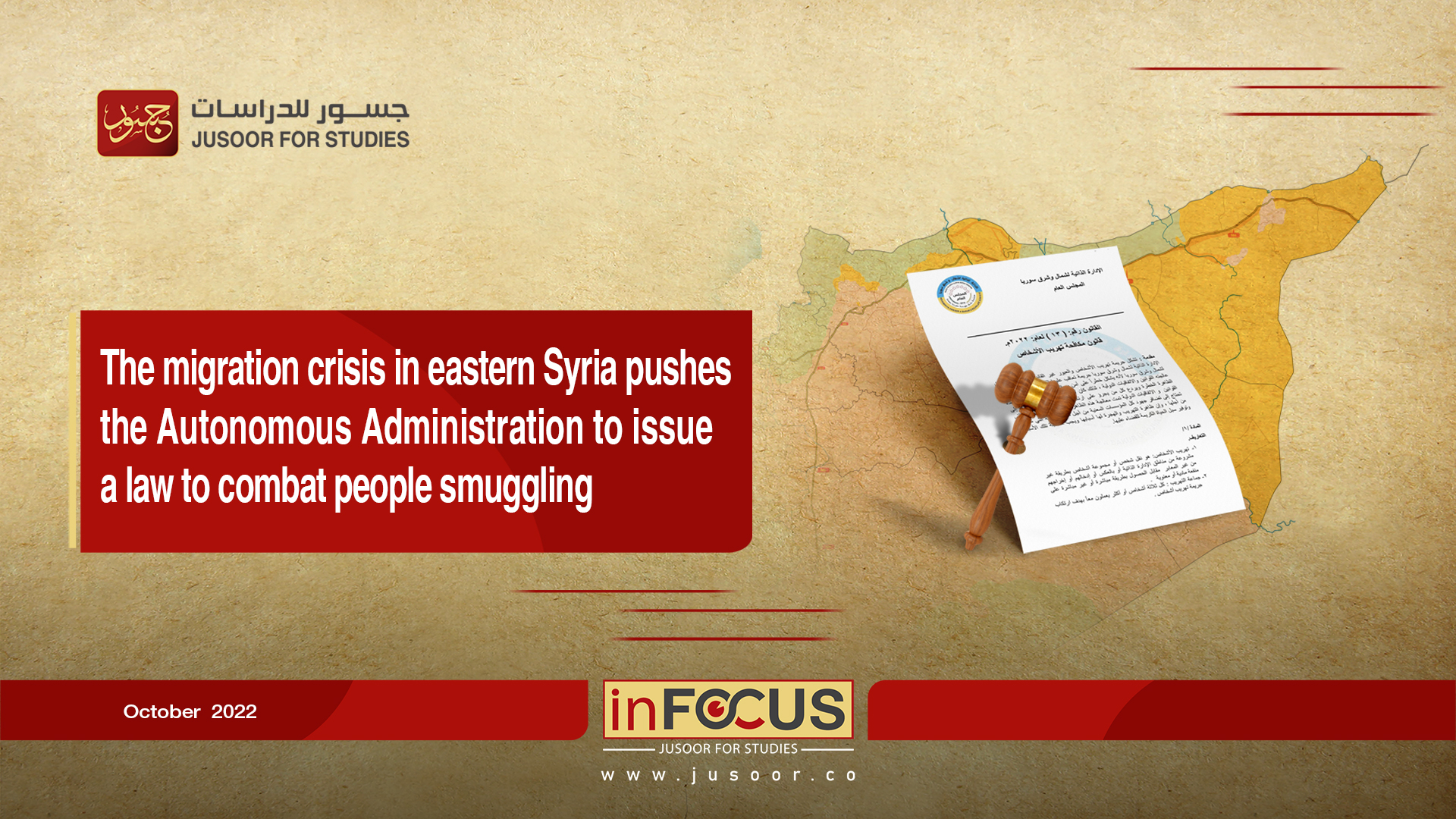The migration crisis in eastern Syria pushes the Autonomous Administration to issue a law to combat people smuggling
On October 18, 2022, the Autonomous Administration in Syria issued a new legislation on "Combating People Smuggling". The legislation included penalties for infringements of the law's provisions which may take the form of fines or imprisonment of smugglers and civilians leaving from or coming to the AANES' areas through crossings not under its control.
The promulgation of the law came after a large and continuous wave of migration in the areas controlled by the Syrian Democratic Forces (SDF) since the middle of this year, during which thousands of people left these areas through several smuggling routes to neighboring countries in order to settle there or cross over to a European Union country.
Usually, PKK cadres directly interfere in approving and repealing laws issued by the Autonomous Administration in Syria; especially when such laws affect PKK's interests and politics.
However, it is not expected that the implementation of this law will lead to the cessation of the migration movement from SDF-controlled areas for several reasons, the most important of which are:
• All those in charge of smuggling operations are collaborators with the SDF and the PKK and its cadres. It is known that the border areas are considered security ones for the PKK’s cadres that sometimes take advantage of the smuggling of civilians to cover up other smuggling operations of the party members, explosives, weapons and communication devices to Turkey, the Kurdistan Region of Iraq and the Syrian opposition-controlled areas in northern Syria.
• Smuggling operations as such guarantee huge financial resources in hard currencies for a number of cadres and leaders in the PKK.
• Such laws issued by the Autonomous Administration, or the SDF have been unable for years to stop the smuggling operations that are taking place between the Euphrates banks, i.e., the SDF-held areas and the regime's ones in the eastern countryside of Deir Ezzor. This happens despite the participation of the US-led International Coalition forces in these efforts; because the cadres of the PKK are engineering and protecting such operations.
Based on the foregoing that refers to the uselessness of this law in combating immigration and its late timing, it can be said that the real reasons and motives behind issuing a law as such are:
• The severe shortage in the numbers of recruitments to the military who are in the military age, let alone the possible huge numbers of military personnel who would desert the SDF, as a result of the migration wave, which includes primarily young age groups, according to the “Self-Defense” law.
• The state of almost complete blockage of work opportunities and its consequences of deterioration in the living and economic conditions in the areas of al-Darbasiyah and Ain al-Arab / Kobani due to the wave of internal and external migration. It shouldn’t be forgotten; however, these areas are considered the main stronghold of the SDF.
• Utilizing the law as an instrument in implementing the policy of isolating the Autonomous Administration areas from the rest of the areas of influence as one of the tools of demographic change; especially since the law contains, unjustifiably, a number of articles that impose penalties on civilians coming to SDF-controlled areas through crossings not under its control, which stipulates that each Syrian civilian coming from regime or opposition-controlled areas should have a sponsor. The penalties also include anyone who facilitates illegal entry of people, no matter what status they have, whether civilians, military personnel or civil servants of the Autonomous Administration.
All in all, it is clear that the content of the recent law and the implementation tools and conditions are not currently available to the Autonomous Administration, because AANES was forced to issue this law urgently to pretend that is abile to intervene and solve the crises facing its areas of control. Moreover, it exploited the decision to achieve social and political goals far from the issue of the migration problem. In fact, the aforementioned problem had to be addressed through different steps that should have aimed at improving the deteriorating security, economic and living conditions in its areas of control.
